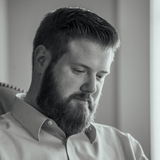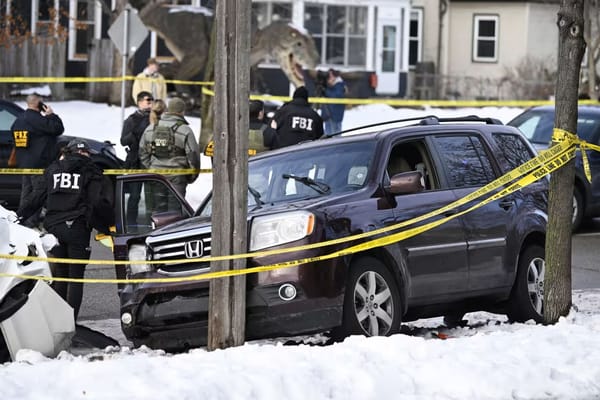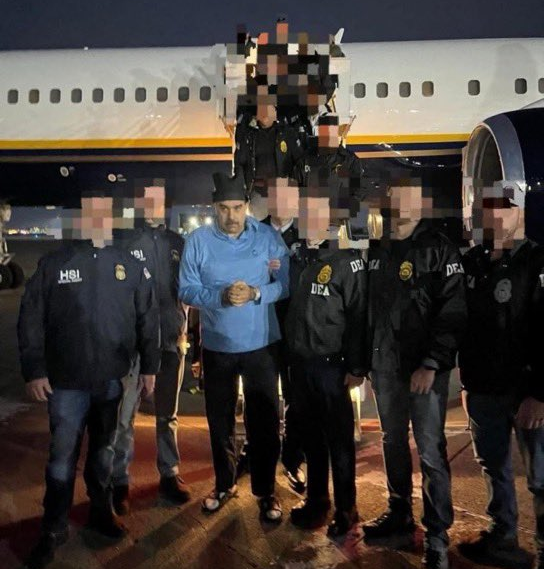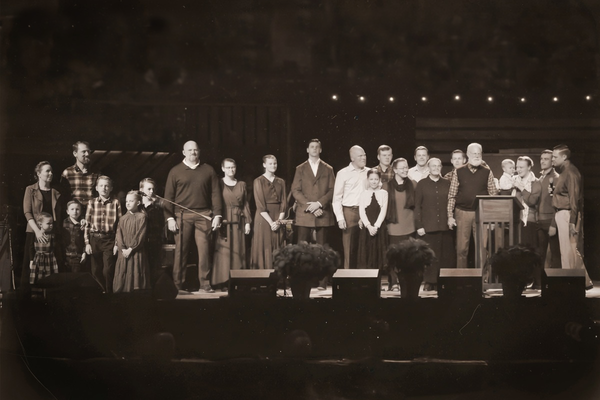My Response to the Attempted Assassination of Former President Donald Trump
These are troubling times. As most of you know, former President Trump was shot this past Saturday. Thankfully, he was not seriously wounded, but two other people were gravely injured, and one was killed. The bullet pierced his ear, narrowly missing his head by a fraction of an inch.
These are troubling times. As most of you know, former President Trump was shot this past Saturday. Thankfully, he was not seriously wounded, but two other people were gravely injured, and one was killed. The bullet pierced his ear, narrowly missing his head by a fraction of an inch.
This incident profoundly disturbs both Americans and the world. The Bible instructs us to pray for our leaders, and we do so earnestly. We pray for their protection, the President’s safety, the safety of the candidates, and our nation’s stability. This is a volatile period in our history.
We have faced turbulent times before, such as presidential assassinations. However, the aggregation of evil we see today is unprecedented.
Click here to watch our response.
Robust Faith – Limited Government
I believe God can help us transform our fear and dread into a productive burden for our personal lives, our families, church, culture, and the world. As I’ve been working on various projects—harmonized theology, history, and a project focused on the American situation—I keep returning to a teaching I’ve given a few times titled, "Freedom is Killing Our Liberty."
The essence of this teaching is that limited government can only exist in an environment of robust community, faith and morality. When faith is gutted from the population, the government must grow larger to fill the void and exert the influence of lost religion. This perspective was shared by the founding fathers of our nation, religious and non-religious alike. Figures such as John Adams, Thomas Jefferson, James Madison, and George Washington all recognized that the limited government they proposed required coexistence with a robust faith community.
John Adams, who favored a stronger federal system, famously said to the Massachusetts militia, “Our constitution was made only for a moral and religious people. It is wholly inadequate to the government of any other.” They unapologetically acknowledged that their novel, limited, constitutional government would not work without a strong faith community.
Imagine the structure of a building. It is predominantly built of wood, which serves as its structural support. However, the most visible aspects of this building are not wood. The exterior is stucco with some tin, and the interior is mostly sheetrock and carpet. The sheetrock and carpet do not support the building structurally. They are “wholly inadequate” to uphold the structure without the wood. Adams viewed the American system similarly, saying the government structure would not last without the support of faith and morality.
Thomas Jefferson wrote, "Can the liberties of a nation be thought secure when we have removed their only firm basis, a conviction in the minds of the people that these liberties are the gift of God? That they are not to be violated but with His wrath? Indeed, I tremble for my country when I reflect that God is just: that His justice cannot sleep forever."
James Madison: "We have staked the whole future of American civilization not upon the power of government. Far from it. We have staked the future of all our political institutions upon the capacity of mankind for self-government; upon the capacity of each and all of us to govern ourselves, to control ourselves, to sustain ourselves according to the Ten Commandments of God."
In his Farewell Address, George Washington articulated, "Of all the dispositions and habits which lead to political prosperity, religion and morality are indispensable supports. In vain would that man claim the tribute of patriotism, who should labor to subvert these great pillars of human happiness, these firmest props of the duties of men and citizens."
Hijacking the Language of Freedom
A wicked trick has been played on American culture. The language of freedom, which was ideal for describing and limiting coercive government, was hijacked and used against the church, a voluntary association that should be viewed and treated utterly other than compulsory government. Paul speaks of the legitimate role of the state, “he who bears the sword.” But it is Satan’s trick to turn the fears and language rightfully directed toward “he who bears the sword” and point them toward the Lamb—He who bears the cross—instead of Caesar.
Civil liberty language, meant to ensure freedom from authoritarianism, was twisted to advocate for freedom from Christ, constraint, responsibility, and everything that hinders the evil nature within man. All of this was done by perverting scriptures and celebrating “freedom in Christ,” fast morphing into decadent licentiousness. This misuse of language eroded the authority of voluntary societies—faith communities—increasingly reducing churches to mere shells with no authority, just a blessing movement for weddings and funerals.
For the first time in our nation’s history, not some fringe lunatic but the very institutions of higher education are debating revoking the First Amendment: freedom of speech, assembly, and religion. Every crisis leads to another discussion about which fundamental American freedom we should give up next—the right to privacy in the Fourth Amendment, the right of self-protection in the Second Amendment, the right of state governance in the Tenth Amendment, and so forth.
The Role of the Church, and the Path Forward
Along with freedom-loving Americans, I cringe at the gathering storm against our constitutional freedoms, ever increasing in volume and force. Yet, I may surprise you by contending that our founding fathers would likely not have granted this particular population dangerous freedoms, such as the Second Amendment. We are morally, culturally, and fundamentally a different society than that which gained this Constitutional birthright. Freedom must always correlate to responsibility; when a culture redefines "freedom" as irresponsibility, the true birthright is lost.
The language of freedom has been hijacked by the disingenuous or ignorant to release throughout our culture a monster of selfish, petulant, juvenile, violent madness that only a tyrant can now cage. Thus, in the name of freedom, fools have sold fools their own slavery—statism—as the only iron hand able to grasp and cage the man of sin, now utterly released in our world.
The church played a significant role in this deterioration by failing to distinguish between Caesar’s and Christ’s authority. They hijacked the language of civil liberty to destroy their own authority—the sole means for restraining the “man of sin.” Now, can only tyranny bring the cultural madness back into check? Every shooting and atrocity fuels the reconsideration of our freedoms, as the government must control a population unrestrained by God.
Western cultures have tended to move in a recurring cycle:
- Suffering under lawless, chaotic paganism
- Learning to value safety over liberty
- Choosing security with a rod of iron-style autocracy
- Valuing and gaining moral restraint under oppression
- Aspiring to greater freedom and personal responsibility
- Gaining freedom by limiting government
- Using freedom mantras to throw off internal restraint
And then the cycle repeats, with a collapse into personal anarchy, chaotic paganism, etc…
Tyranny is the most natural form of human governance. This isn't just a philosophical stance; it's a historical observation.
What we're experiencing in this country is a grand experiment, and it's failing. It could work, but only if the faith community remains integral, as our founders warned.
Every theologian, pastor, mother, and father who misused the rhetoric of “freedom” to dismantle the authority of families, fathers, mothers, pastors, and churches are complicit in the current chaos and the eventual return of autocratic statism.
We have begun a community movement emphasizing personal responsibility and defining freedom as taking dominion for our own lives—raising our food, schooling our young, birthing at home, and healing our sick within the community—owning the birthright of true, responsible life. In this movement of ours, we explicitly recognize that humanity is dual-natured. While we possess limitless potential because we are made in the image of God, we also harbor a baser nature.
Within each of us lies a conflict between the “angels” of our highest destiny and the “demons” of our baser instincts. To realize our higher potential, we must restrain the latter. Historically, when society restrained these base instincts, human potential flourished. Those enamored with the values of modern culture will look at us and say much of what they would say about the Christians of the 19th century – “So backward, so Bible-centered, prudish, restrictive. So little freedom in Christ!"
Consider this paradox. In the 1790s and early 1800s, American culture, seen as backward and prudish by smug moderns, produced the freest form of government ever known. In contrast, today’s modern era, viewed as liberated and limitless, is ushering in a new season of unprecedented violence and cultural decay that inevitably leads to totalitarianism. But within our own spheres—families and fellowships—we must celebrate restraint and not be distracted or lured away by a false freedom. We may yet inherit the birthright of self-determination, assuming responsibility for our own lives.
America’s most significant advances occurred under just this kind of Christian restraint. Now, under the guise of freedom, we are releasing our baser nature, and the church simply jumped on the bandwagon. This conflict—between the creator and the destroyer within us—threatens our realized potential. One is a creator, reflecting God's image; the other is a destroyer, embracing the lies of the original murderer.
Repentance is the only hope for our nation. Yet, genuine repentance is unlikely to occur voluntarily. People won't choose the cross and personal repentance as long as they believe in other options. True repentance will only come in the wake of calamity. We pray that God's grace limits and shortens any such inevitable calamity to restore sanity to our minds. But it is coming.
Calamity and the Call for Repentance
Calamity is inevitable. I am grateful it didn't come last Saturday. If a crazed individual had succeeded, today's world would be very different.
Think what you will. I am not enamored with either side right now—they seem broken and too truncated in their vision of both humanity's plight and the hope and promise of this nation—but we would be in a very dangerous world had that bullet landed one inch to the right. This is not the end; it is the beginning. We have seen tragic assassinations before—Martin Luther King, JFK, and Abraham Lincoln. We have endured dark seasons like the Civil War. Yet, never have we faced a conflict where the entire aggregation of society is as chaotic as it is today. Never have we attempted to navigate a national crisis so divorced from God as we are now.
We have no clue what the future holds, but it will not resemble the past. Whether that's better or worse depends on whether you believe God's influence is beneficial or not.
Hope lies in awakening the world, or at least the church, to the realization that true freedom is found in Christ. Human authoritarianism—statism—cannot be responsibly limited except when coupled with robust faith communities. All other experiments at freedom will ultimately implode.
Our mission is to acknowledge our baser nature, make it a slave to Christ, and create a culture of restraint. Why? – Because we like restraint for its own sake? No! Because we know that our destiny can only be released when our carnal nature is enslaved to Christ. Like those who lived 200 years ago, we can realize our potential and destiny. If you can't realize your destiny, it is because your baser nature is pulling you in the opposite direction. If you can make your flesh a slave to Christ, you can run freely in the paths of His commands.
As they said about the early Americans, it will also be said about the New Covenant church. “They accomplished things I never thought possible.” Whether in practical or spiritual realms, something beautiful, fabulous, and unprecedented occurs when people come to repentance. Repentance resolves internal dissonance.
Who can hit the perfect pitch if they hear a wrong note in their ear? They must first resolve the internal dissonance. Who can aspire to jump high if anchored to the ground? They must find an escape from the sin that so easily besets them that they might run with endurance the path marked out for them. There is a war inside us, and we are stuck until we resolve it sufficiently to move decisively in obedience. We are stuck as individuals, as families, churches, and the body of Christ worldwide—until we celebrate repentance.
When we resolve that internal conflict, voila! Liberation. Liberation from what binds us, from what holds us down. Liberation to become the sons of God.
Conclusion
We are in troubling times marked by unprecedented violence and cultural decay, signaled by last week's attack on former President Trump. This incident reflects a broader societal collapse where freedom, once a safeguard against authoritarianism, is now misused to undermine the moral and religious foundation necessary for limited government. The hijacking of the language of civil liberty has eroded the authority of families and churches, leading to chaos and the inevitable resurgence of tyranny. The only hope for our nation lies in repentance, acknowledging our dual nature, and fostering communities and cultures of restraint—unapologetically enslaving our baser instincts to our higher destiny in Christ.
Do you want to change America, end the violence, and return to past seasons of growth, responsibility, and excellence? Then, exercise God's spiritual power to reestablish the authority of families and faith communities. Stop celebrating the release of sin and celebrate its constraint as a slave to Christ, and thus realize our true potential. Let's join in prayer and obedience to change our fear and dread into a productive burden that fosters personal, cultural, and global healing. We can help restore sanity and freedom, paving the way for a brighter future for generations to come.
— Asahel Adams





